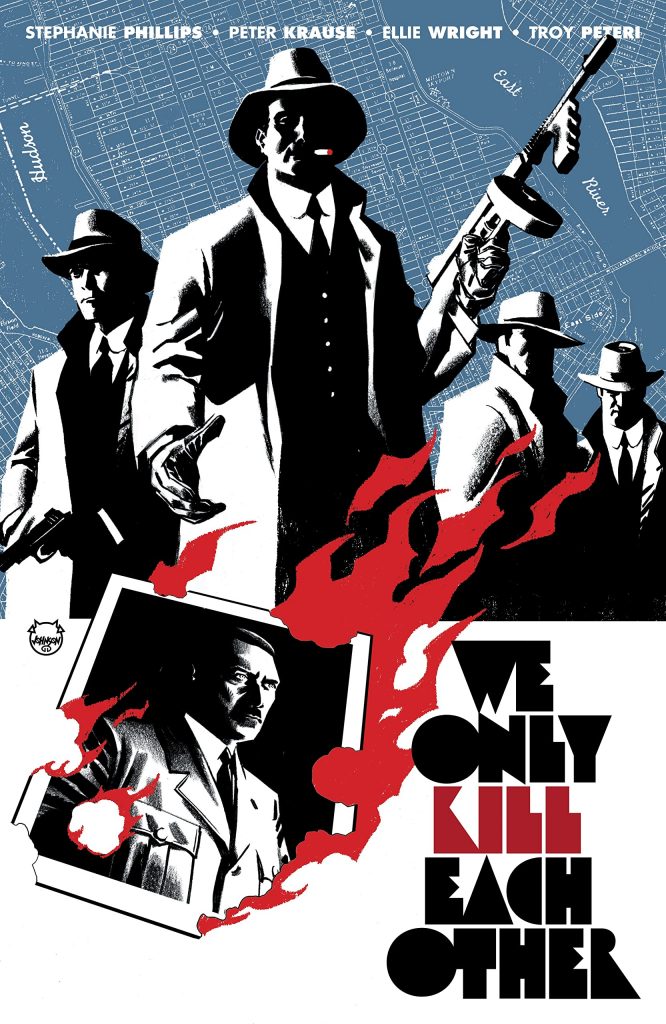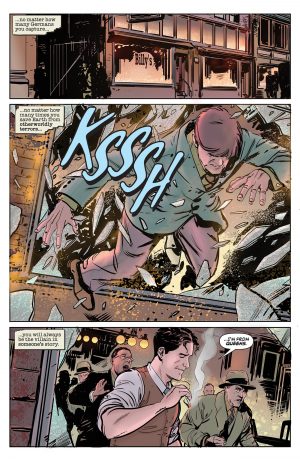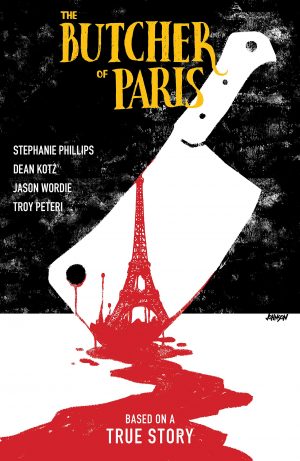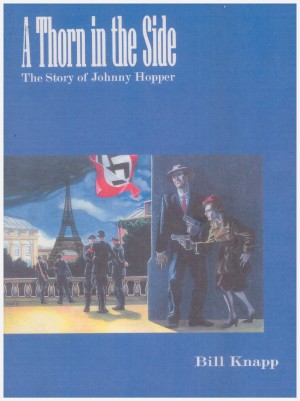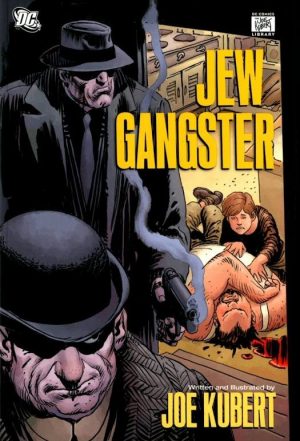Review by Karl Verhoven
From the early pages We Only Kill Each Other deals in contradictions and contrasts, presenting the cast in shades of grey rather than black and white. Jonas Kaminsky is a gangster, yet will become a hero. Levi Solomon is an even higher ranking gangster, yet keeps to his ceremonial religious traditions while trampling all over the spirit of them. The evil of Fritz Kuhn is even more obvious, an opportunistic American of German descent who appointed himself “American Führer” in the lead-up to World War II.
Stephanie Phillips weaves her fictionalised version of true events around those three people, with only Kuhn being historically verifiable. There’s antipathy between Kaminsky and the older Solomon, but when both are caught by the police, they’re co-opted into a partnership disrupting Kuhn’s organisation. In the late 1930s the USA has to show political sensitivity about Europe, but there’s a recognition of what the Nazis are. The younger Kaminsky provides the narrative captions, and what’s seen of his past shows he’s always been reckless and headstrong, while Solomon is more of a planner, and Phillips defines them both clearly.
So does artist Peter Krause, his form of figurative realism at times having hints of Joe Kubert to it. He draws whatever’s needed with a clarity that conveys action and danger, accentuating the tension and emotional drama. It’s understated art at times, but that prioritises the story.
And what a story it is. There’s no indication of how much is based on fact, so best not to be too concerned about historical certainty and let the thrills carry you away. Phillips paces events to maximise that, although it glosses over a few circumstances that might be given wider explanation. The contrasts continue throughout, Solomon able to conceal what he is, while Kaminsky’s true personality is only ever a stray comment away from erupting. He’s self-aware enough to state “I’m not the good guy”, following up with “but even if you can admit you’re the villain there’s usually somebody worse”.
We Only Kill Each Other has a point to make, provides unpredictable entertainment in doing so, and all right thinking people enjoy Nazis getting what’s coming to them. So, fun all round.
